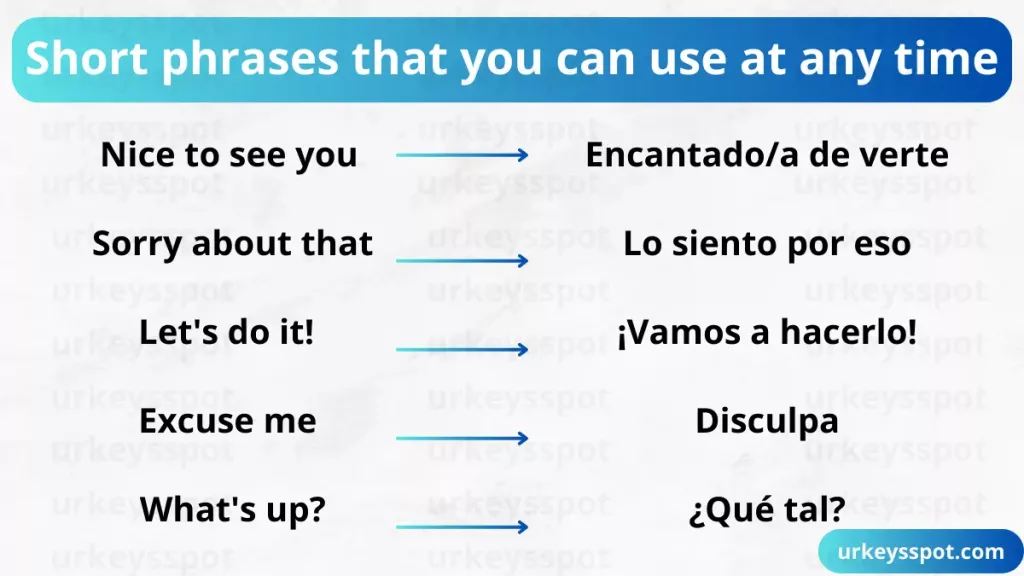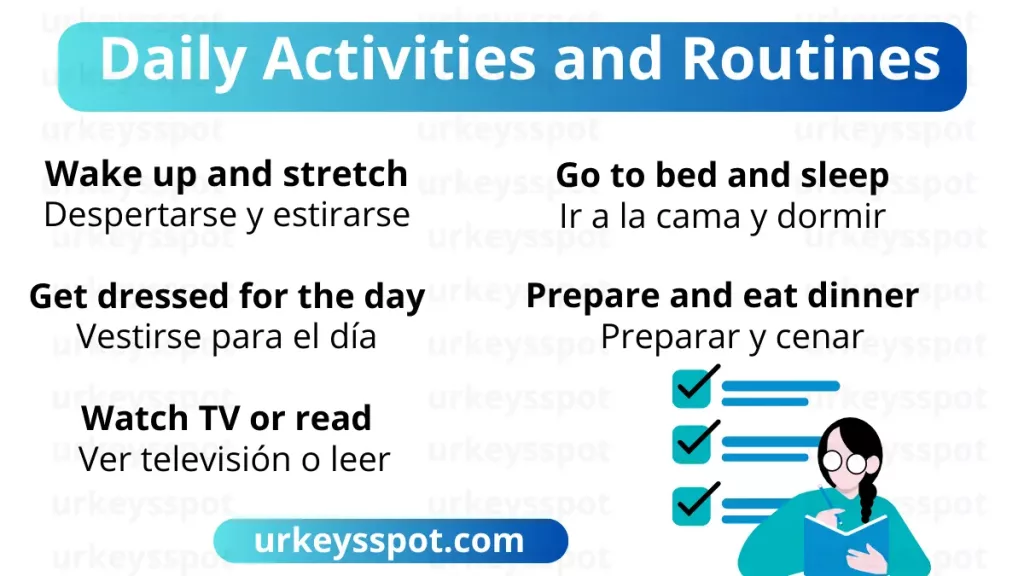In the tapestry of human connection, language serves as the vibrant thread that weaves our thoughts, emotions, and intentions into a cohesive narrative. Among the myriad languages that grace our world, English holds a unique position, serving as a bridge across cultures and continents. This article delves into the essence of English communication, focusing on those short, powerful phrases that oil the wheels of our daily interactions. Whether you’re a language learner or a native speaker, understanding and employing these phrases can significantly enhance your conversational prowess.
Introduction
Imagine standing at the crossroads of communication, where every phrase you utter can open doors to new relationships, opportunities, and understandings. In this bustling intersection of words and meanings, short phrases in English emerge as your trusty companions, ready to guide you through various conversational landscapes. Whether you’re exchanging pleasantries, seeking clarity, or sharing insights, these phrases are the keys to unlocking effective and engaging interactions.
In the forthcoming sections, we’ll explore the myriad ways in which these short phrases can be woven into the fabric of your daily conversations. From greetings that warm the heart to expressions of gratitude that deepen bonds, each phrase carries the power to transform a mere exchange of words into a meaningful connection. So, buckle up and prepare to embark on a linguistic journey that promises to enrich your English communication skills, one short phrase at a time.
Engaging with these phrases is not merely about memorization but about understanding their context, nuances, and the doors they open in the landscape of communication. As we delve into these expressions, we invite you to embrace the versatility and charm of English, a language that continues to evolve and enchant millions worldwide.
Join us as we navigate this exciting exploration, ensuring that the next time you find yourself at the crossroads of conversation, you’re well-equipped with the right phrases at just the right time.
Greetings and Casual Phrases

Navigating the world of English greetings is like opening a treasure chest of expressions, each shimmering with its own unique charm and context. These short phrases, the very first threads of our daily interactions, set the tone for the conversations to follow. Let’s dive into the subtleties of casual and slang greetings, unearthing the right expressions for every situation.
Casual Greetings
Ever bumped into an old friend after years apart? “Long time no see” or “It’s been a while” are your go-to phrases, echoing the warmth of reconnection (FluentU). These phrases do more than just acknowledge the passage of time; they reopen chapters of shared memories and invite new stories.
But greetings are not one-size-fits-all. Depending on where you are in the English-speaking world, a simple “Hello” might morph into a “Howdy” in certain American states or a “G’day mate!” in Australia (FluentU). Recognizing these regional flavors not only enriches your vocabulary but also shows a deeper appreciation and understanding of the local culture.
Slang Greetings
Now, let’s turn up the casual meter with some slang greetings. Ever heard someone say “Yo!” or “What’s up?” These are the casual handshakes of the verbal world, perfect for friends and informal settings (FluentU). But remember, the world of slang is like a river, constantly changing and flowing with new trends. What’s cool in one place might be puzzling elsewhere, so it’s crucial to tune into the local linguistic vibe.
“Sup?” or “Whazzup?” are the laid-back cousins of “What’s up?” and thrive among close circles, especially the younger crowd (FluentU). But no matter the slang, the essence remains the same – it’s all about making a connection, acknowledging the other person, and setting the stage for a relaxed conversation.
In this kaleidoscope of greetings, choosing the right phrase is like selecting the perfect outfit for the occasion – it’s all about context. So whether you’re exchanging a morning “Hello” or a casual “Yo,” remember that each greeting is a brushstroke in the art of conversation, painting the tone and color of the dialogue to come.
In the next section, we’ll explore phrases that are not just conversation starters but also essential tools for those learning English, providing clarity and fostering understanding in the journey of language acquisition. Stay tuned as we decode more phrases that are integral to daily English interactions.
Phrases for Learning English
Embarking on the journey of learning English, one quickly realizes the power of short, impactful phrases that pave the way for clear and effective communication. Whether you’re a beginner or advancing in your English skills, mastering these phrases can significantly ease your learning curve. Let’s delve into the essential phrases that every English learner should have at their disposal.
Clarification and Understanding
When navigating the intricacies of English, it’s crucial to have phrases that help bridge the gap between confusion and comprehension. “I do not understand” is a straightforward expression of your need for clarity, inviting the speaker to rephrase or elaborate (FluentU). Similarly, “Could you repeat that, please?” is an invaluable tool in your linguistic toolkit, signaling your eagerness to grasp the full meaning of the conversation (FluentU).
Equally important is the ability to manage the pace of information flow. “Could you please talk slower?” is not just a request; it’s a lifeline to understanding, especially when faced with native speakers who might speak rapidly (FluentU). These phrases are not mere words but bridges connecting you to greater understanding and engagement in your conversations.
Expressing Gratitude in Learning
As you navigate the learning landscape, expressing gratitude becomes a pivotal part of the exchange. “Thank you. That helps a lot” is a simple yet profound way to acknowledge the assistance or patience offered by others (FluentU). It’s a phrase that not only conveys appreciation but also reinforces the positive feedback loop in learning interactions, encouraging more supportive exchanges.
These phrases are your allies in the journey of English learning, transforming obstacles into opportunities for growth and connection. They embody the proactive attitude that can turn every conversation into a learning moment, propelling you forward in your quest for language mastery.
As we move forward, we’ll explore the phrases that color our daily activities and routines, providing a lens through which to view the ordinary moments of our lives through the extraordinary lens of language. Stay tuned for the next section, where we unravel the phrases that accompany us from the moment we wake up to the end of our day.
Daily Activities and Routines

In the tapestry of our daily lives, language serves as the thread that connects our actions, thoughts, and interactions. The phrases we use as we navigate our day-to-day activities not only facilitate communication but also add color and context to our routines. Let’s explore the essential English phrases that accompany us through various segments of our day, from the moment we rise to the engagements of our daily hustle.
Morning Routines
Our mornings set the stage for the day ahead, and the phrases we use can range from the simple “Wake up” to the more detailed “Take a shower” or “Get dressed” (FluentU). These phrases do more than just describe our actions; they invite others into our world, offering a glimpse into our daily rituals. For instance, “Wake up” transitions us from rest to activity, while “Take a shower” signifies a refreshing start, cleansing not just the body but also preparing the mind for the day’s challenges.
When we talk about “Getting ready,” we’re encapsulating a series of actions, from brushing our teeth to choosing our attire (FluentU). These phrases are the unsung heroes of our morning dialogues, orchestrating our transition from the private sphere of our homes to the public arena of our daily engagements.
Asking for Information
As our day progresses, our interactions often require us to seek out information. Phrases like “Could you tell me…?” or “I’d like to know…” are keys that unlock the doors to knowledge and clarification (Learn English Team). They demonstrate our curiosity and our willingness to engage with the world around us, seeking to understand more than what meets the eye.
In the dance of dialogue, asking for information is a step that draws us closer to others, fostering a connection built on the desire to understand and be understood. Whether we’re inquiring about a meeting time or the details of a project, these phrases are the tools we wield to navigate the landscape of our daily interactions, ensuring that we are informed, prepared, and connected.
In the upcoming section, we’ll delve into the language of opinions and responses, exploring how English phrases allow us to express our thoughts, agree or disagree, and react to the unfolding narratives of our lives. Stay tuned as we continue to unravel the fabric of daily communication through the lens of English phrases.
Expressing Opinions and Responses
Communication thrives on the exchange of thoughts and opinions, making the ability to articulate your stance a cornerstone of effective interaction. In this section, we delve into the phrases that enable us to express agreement or disagreement, as well as respond empathetically to the news we receive. These expressions are the spices of conversation, adding flavor and depth to our dialogues.
Agreeing and Disagreeing
Agreeing in English is more than just nodding; it’s about using phrases like “I agree” to resonate with someone else’s thoughts (Espresso English). When you say “Absolutely!” or “That’s right,” you’re not just affirming words; you’re aligning with ideas, creating a harmony of viewpoints (Espresso English).
Disagreement, on the other hand, isn’t about creating discord; it’s about presenting a different perspective. Phrases like “I don’t think so” or “I see it differently” allow us to express our unique viewpoints respectfully (Espresso English). They serve as a reminder that diversity in thought is a tapestry that enriches our conversations and our connections.
Reacting to News
Life’s ebb and flow bring a mix of news to our doorstep, and English offers us a palette of phrases to respond with. When greeted with good tidings, expressions like “Congratulations!” or “That’s great!” serve as our joyful chorus (Espresso English). They’re our way of sharing in the happiness, amplifying the positive vibrations.
In moments of sorrow or difficulty, phrases like “I’m sorry to hear that” provide a comforting embrace, acknowledging the pain or challenge faced by others (Espresso English). These words are more than just syllables; they’re a bridge of empathy, offering solace and understanding.
In the upcoming section, we’ll explore the whimsical world of idioms and common sayings, unveiling how these expressions add color and cultural texture to our daily language. Join us as we continue to navigate the rich landscape of English communication, one phrase at a time.
Idioms and Common Sayings

Idioms and common sayings are the spices of the English language, adding flavor, color, and cultural nuance to our conversations. These expressions, often puzzling to learners due to their non-literal meanings, enrich our dialogue, providing a shared cultural context that goes beyond the mere dictionary definitions of words. Let’s explore some of these vibrant expressions that pepper our daily language.
Idioms to Navigate Life’s Situations
Life often feels like a navigation through a maze of experiences, and idioms like “Out of the frying pan, into the fire” aptly describe those moments when we move from one challenging situation to another (7ESL). Such phrases encapsulate complex experiences in a handful of words, offering a shared understanding that transcends individual explanations.
Another gem from the treasury of idioms is “Keep your chin up,” a rallying cry to maintain courage and optimism in tough times (Just Learn | Unlock the World). This idiom doesn’t just communicate advice; it serves as a verbal embrace, offering support and solidarity.
Common Sayings for Everyday Wisdom
Common sayings, on the other hand, are the distilled wisdom of generations, passed down in concise, memorable lines. “Make a long story short” is one such phrase, a verbal shortcut that acknowledges the listener’s time and attention, summarizing lengthy narratives into essential takeaways (Just Learn | Unlock the World).
“Once in a blue moon” is another delightful phrase that captures the rarity of an event, enriching our descriptions with the beauty of celestial imagery (Just Learn | Unlock the World). These sayings not only enrich our language but also connect us to a shared human experience, bridging individual stories with universal truths.
In the realm of idioms and sayings, language reveals its artistry, painting pictures with words, and conveying complex ideas through simple, vivid expressions. As we continue our exploration of English phrases, let’s embrace these colorful expressions, allowing them to enhance our communication with their timeless wisdom and whimsical charm.
Next, we’ll transition to our final section, focusing on FAQs that shed light on commonly asked questions regarding the use of these versatile and vibrant English phrases.
FAQs
What is the number 1 most used word in English?
The word “the” is often cited as the most used word in English. Its frequency stems from its role as a definite article, essential in specifying particular nouns, making it a cornerstone of English sentence structure.
What is the most popular phrase?
Determining the “most popular” phrase can be challenging as it varies by context, culture, and usage over time. However, everyday expressions like “Thank you” and “Please” are universally recognized and widely used across various contexts, highlighting the importance of politeness and gratitude in communication.
What is simple phrases?
Simple phrases are basic expressions or groups of words that convey a clear message but don’t have the complexity of a full sentence. They typically lack a subject or verb, such as “on time” or “after dinner.” These phrases are fundamental to communication, providing concise ways to express ideas or actions.
What are examples of short phrases?
Short phrases are brief, concise expressions that can stand alone or be part of a larger sentence. Examples include:
- “Good morning.”
- “Well done.”
- “Take care.”
- “See you soon.”
These phrases are integral to everyday communication, offering quick, effective ways to interact, convey emotions, or perform social rituals. Whether in formal or informal settings, short phrases help streamline our interactions, making them more efficient and often more meaningful.
conclusion
As we draw the curtains on our exploration of short phrases in English, it’s evident that these expressions are more than just words; they are the essence of communication, the very fabric that binds our interactions and conversations. From the casual hellos to the heartfelt expressions of empathy, each phrase carries a weight, a significance that transcends its brevity.
We’ve navigated through casual greetings, delved into the nuances of learning phrases, explored daily routines, expressed opinions and responses, and even danced with idioms and sayings, all while addressing common questions that arise in the journey of language learning. These phrases are the toolkit of communication, equipping you to engage, connect, and resonate with others in a myriad of contexts.
Remember, language is a living, breathing entity, ever-evolving and adapting. Embrace the learning process, be curious, and don’t shy away from making mistakes—they are, after all, the stepping stones to mastery. Whether you’re a novice learner or a seasoned speaker, there’s always a new phrase to discover, a new expression to weave into the tapestry of your conversations.
So, as you step forward, armed with a richer vocabulary and a deeper understanding of English phrases, remember to listen, to practice, and to engage. Language is not just about speaking; it’s about connecting, understanding, and sharing experiences. Let these short phrases be your allies in crafting meaningful, vibrant, and resonant dialogues in your journey through the fascinating world of English communication.

